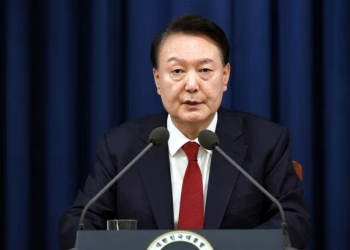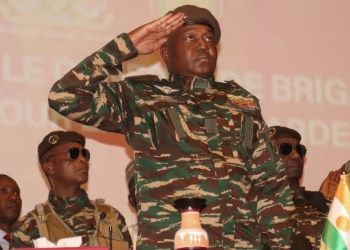A curfew has been enacted in Kano, Nigeria’s second-largest state, following protests over the rising cost of living that escalated into widespread looting and property destruction, according to the governor’s office.
The unrest, which began with large crowds in Kano and other major cities, led to business closures and clashes with police. Officers used live ammunition, tear gas, and water cannons to disperse thousands of protesters, resulting in four injuries.
Protesters had initially set fire to tyres outside the residence of Governor Abba Kabir Yusuf and looted a nearby warehouse, taking vegetable oil and mattresses. The curfew aims to halt further protests, requiring residents to stay indoors.
Kano’s population, estimated unofficially at around 20 million, has seen escalating unrest inspired by recent successful protests in Kenya against tax increases. Despite claims of peaceful demonstrations, Governor Yusuf declared the curfew to address looting and violence attributed to “thugs.”
In Abuja, a court restricted protesters to the National Stadium, but they moved into the city center on Thursday, prompting police action that disrupted traffic.
Protests in Lagos, Nigeria’s economic hub, have targeted President Bola Tinubu’s removal of fuel subsidies, which has led to skyrocketing prices and increased living costs. Protesters demand a reversal of the subsidy removal and broader reforms to the electoral and judicial systems.
Activists argue that the government’s call for patience is undermined by perceived government excesses, such as plans to purchase new private jets. The protests are expected to continue if demands are not met.
Additional reporting by BBC’s Zaharadeen Lawal in Kano, Chris Ewokor in Abuja, and Simi Jolaoso in Lagos.















